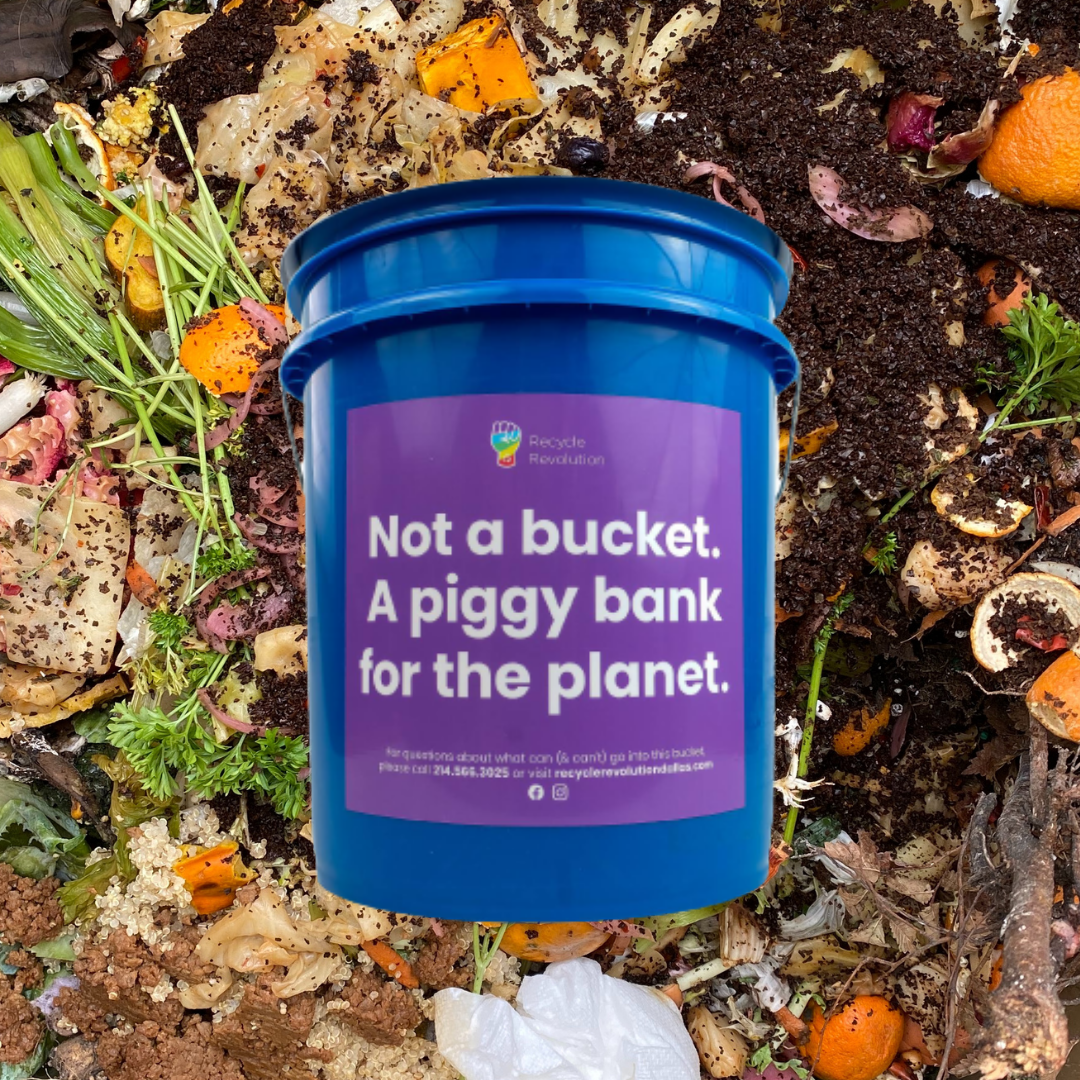
Composting
Putting our food waste back to good use
RR first began collecting food waste in a small pick-up truck from a tiny (funky!) neighborhood in East Dallas in 2012.
Today, we're the leading collector of post-consumer food products for composting in North Texas, diverting close to 150 tons per month from local landfills.
What We Accept
For questions about more specific items we accept in our compost, please visit our FAQ page here.
How to Compost With Us
Commercial Services
For businesses of all shapes & sizes with both pre- & post-consumer food waste.
Community Drop Off Center
Bring your food waste to us in any container you like for just $1 / gallon.
Residential Collection
We come to you! Weekly collection, 5-gallon buckets, and compost perks!
Why We Love Composting
Simply put, composting is nature's way of recycling organic matter. It's the decomposition of natural solid waste into compost, a highly nutritious fertilizer used in gardening, landscaping, horticulture, and agriculture.
Like other recycling activities, making use of our discarded food products is good for our economy, environment, and community right here in North Texas. Composting creates exponentially more jobs than landfilling, prevents degradation of local natural resources, and provides us with a natural and highly nutritious alternative to chemical fertilizers, helping our community stay healthy.
How We Compost
The food we collect is delivered to local, certified organic facilities, where it's blended with locally-found carbon sources (such as leaves, tree branches, & untreated wood) to create high-quality, nutrient-dense compost. The finished compost is brought to market by local retailers and landscapers, eventually making its way into our North Texas yards, gardens, and landscapes.
Most modern organic composting techniques are "controlled", meaning that humans organize the process as opposed to nature. Controlled composting typically involves the systematic blending of 4 essential elements in order to create high-quality compost: carbon (from dry materials like branches and dead leaves), nitrogen (from food waste and green leafy matter), oxygen (air), and water!




